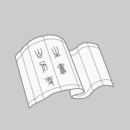
致命注射 Kill Shot 英文原版 预防流行病学与卫生学
¥ 198 8.3折 ¥ 238 九五品
仅1件
广东广州
认证卖家担保交易快速发货售后保障
作者Jason Dearen
出版社Avery Publishing Group
ISBN9780593085783
出版时间2021-02
印刷时间2021-02
印数1千册
装帧精装
开本32开
纸张轻型纸
页数304页
字数1千字
定价238元
上书时间2024-11-07
- 最新上架
商品详情
- 品相描述:九五品
- 商品描述
-
基本信息
Edited by:Jason Dearen
Publisher:Avery
Published:23 Feb 2021
Language:English
Format Hardback:272 pages
ISBN-10 : 0593085787
ISBN-13 : 978-0593085783
Weight: 439 g
Dimensions:158 x 24 x 235(mm)
页面参数仅供参考,具体以实物为准
书籍简介
两名药剂师被控谋杀,坐在波士顿法庭上。武器:刺萼外露门菌。死亡人数:100人,而且还在增加《致命注射》讲述了他们的傲慢和欺诈,被一组医学侦探发现,他们争分夺秒地追捕凶手和他们释放的真菌性脑膜炎。
“嗜血”是医生们对真菌微生物的描述,这种微生物污染了新英格兰合成中心(NECC)生产的数千支药瓶。尽管NECC首席执行官巴里·卡登(Barry Cadden)称他的公司为“制药中的法拉利”(Ferrari of compders),但这是一个不合格员工的草率操作,实验室表面布满了霉,匆忙生产的药物被注射到大约14000人体内。一旦进入宿主体内,真菌就会穿过脊柱周围的坚韧组织,向上爬到“深部大脑”,这是我们控制平衡、呼吸和生命重要运动功能的中心。
现在,调查记者杰森·迪伦将焦点集中在这场悲剧上——受害者、英雄和行凶者——以及使其发生的法律漏洞。射杀迫使一个强大但不受约束的行业走出阴影。
Two pharmacists sit in a Boston courtroom accused of murder. The weapon: the fungus Exserohilum rostratum. The death count: 100 and rising. Kill Shot is the story of their hubris and fraud, discovered by a team of medical detectives who raced against the clock to hunt the killers and the fungal meningitis they'd unleashed.
"Bloodthirsty" is how doctors described the fungal microbe that contaminated thousands of drug vials produced by the New England Compounding Center (NECC). Though NECC chief Barry Cadden called his company the "Ferrari of Compounders," it was a slapdash operation of unqualified staff, mold-ridden lab surfaces, and hastily made medications that were injected into approximately 14,000 people. Once inside some of its human hosts, the fungus traveled through the tough tissue around the spine and wormed upward to the "deep brain," our control center for balance, breath, and the vital motor functions of life.
Now, investigative journalist Jason Dearen turns a spotlight on this tragedy--the victims, the heroes, and the perpetrators--and the legal loopholes that allowed it to occur. Kill Shot forces a powerful but unchecked industry out of the shadows.
作者简介
杰森·迪伦是美联社获奖调查记者,也是麻省理工学院2018-2019年度奈特科学新闻研究员。他的作品经常出现在数百家报纸和网站上,包括《华盛顿邮报》、《卫报》、《今日美国》和《纽约时报》。他曾两次被美联社提名普利策奖。迪伦在加州长大,进入哥伦比亚大学新闻研究生院学习。他和他的妻子住在一起,他的妻子是法学教授。
Jason Dearen is an award-winning investigative journalist for the Associated Press and was a 2018-2019 Knight Science Journalism Fellow at MIT. His work appears regularly in hundreds of newspapers and websites, including The Washington Post, The Guardian, USA Today, and The New York Times. He has twice been nominated by the Associated Press for the Pulitzer Prize. Dearen grew up in California and attended the Columbia Graduate School of Journalism. He lives with his wife, a law profess
— 没有更多了 —












以下为对购买帮助不大的评价